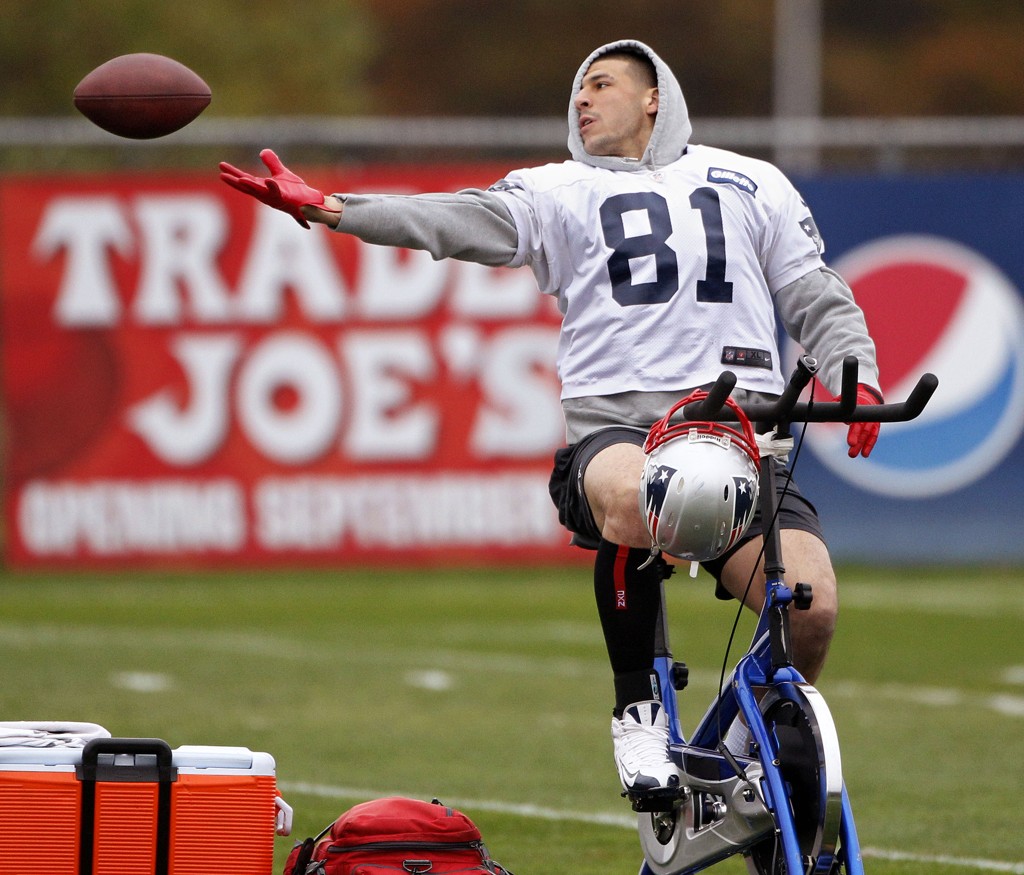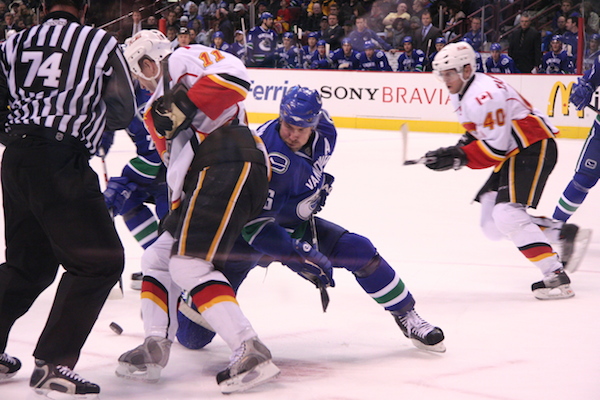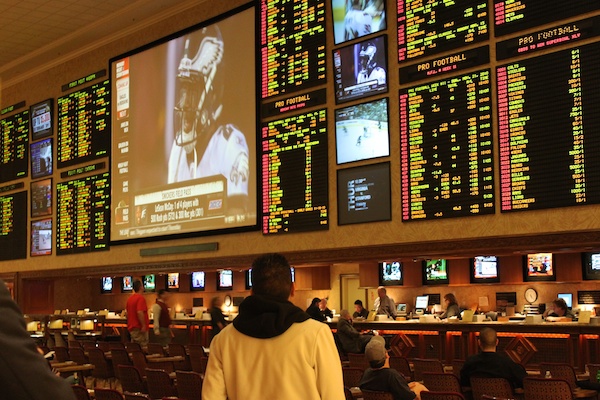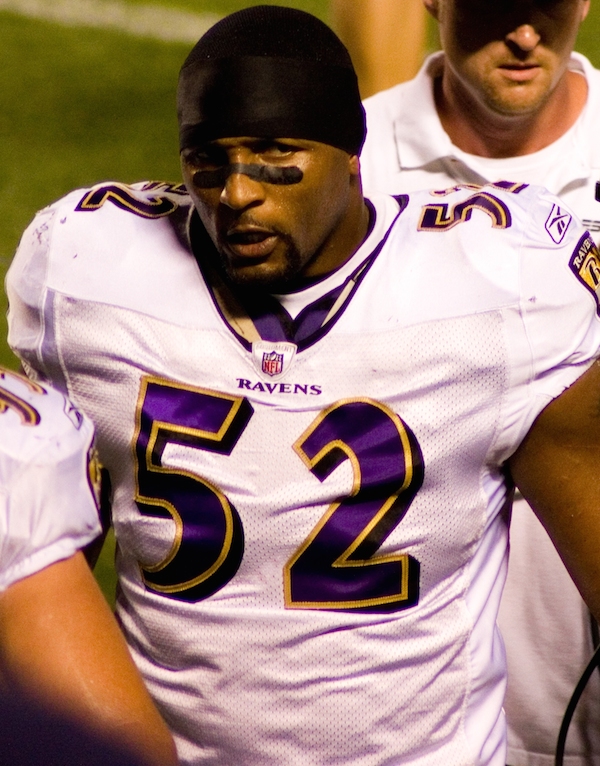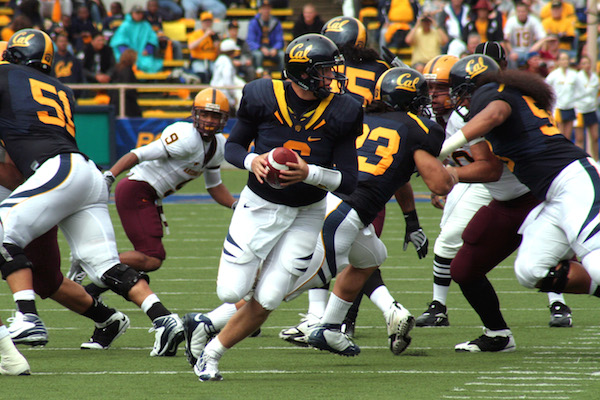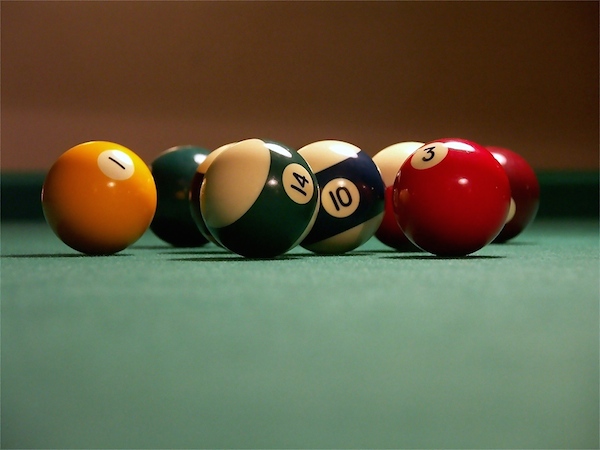Dear Sports Fan,
What is going on up in Boston with the football player Aaron Hernandez? Did he really kill someone? Why does it seem like athletes are in trouble with the law so often?
Thanks,
AJ
— — —
Hi AJ,
It’s not completely clear what’s going on in Boston with Patriots’ Tight End Aaron Hernandez. Here’s what we do know: a 27 year-old man named Odin Lloyd is dead. He was found Monday morning and by Wednesday his death had been ruled a homicide. As the Boston Globe reports, Aaron Hernandez is “embroiled” in this story in a number of ways. Lloyd either was or had been dating Hernandez’ sister. Hernandez was out with Lloyd and some other people the night Lloyd died. Hernandez apparently drove Lloyd and two other friends in a car away from the club where Lloyd was last seen alive. The car, a rental, was found abandoned near the body and had been registered to Hernandez. Hernandez also is said to have destroyed his home security system and cell-phone sometime after Monday night.
The media of course (including this website, I guess, although this is our first and hopefully last post on the subject) has been ALL over this story. According to the New York Times which clearly likes to see itself as above the fray:
“Sounds familiar, doesn’t it?” said Michael McDowell, a laborer for a mason contractor, as he cleared off the bed of a company truck and looked up at a chopper overhead. He wore a faded Patriots T-shirt. “Football player, on the run.” Hernandez was not running from the police; he was evading the news media, who sprang into action for a relatively mundane pursuit when he left his house on Thursday morning.
The blog-o-sphere has been equally focused. Deadspin.com even ran a post covering a tweet which relayed the information that an edible arrangement had just been sent to Aaron Hernandez’ house. Meanwhile the police have been fairly silent on the topic aside from saying that Hernandez is a “person of interest.” The most recent development is that lots of sites reported that an arrest warrant for Hernandez for obstructing justice had been issued. That report was pretty quickly disputed and as of now it seems as though no warrant has been issued.
So what do we make of all of this? There are a few things I find interesting. First is of course the question you asked about why it seems like athletes are always mixed up in stuff like this. I’m cautious about commenting on this authoritatively but most of what I find online suggests that “it is not clear that athletes are any more involved in serious crime than the general population is.” An interesting Duke study concludes that athletes actually commit fewer crimes than a similar segment of the general population. When they do commit crimes, it stands to reason that they will be far more public than the general population. Second is whether or not Hernandez committed a crime. My guess is that he did, but it seems just as likely that he is guilty of aiding, abetting, and protecting someone who committed murder as it is that he committed murder himself. Last is my own reaction which has been a small but constant voice in my head saying “this guy was on my fantasy football team!??!” As if somehow that makes me connected to the incident or more shocking that someone I’m related to that closely is involved with a murder. This speaks either to the power of fantasy sports or to my having a screw loose.
Thanks,
Ezra Fischer

